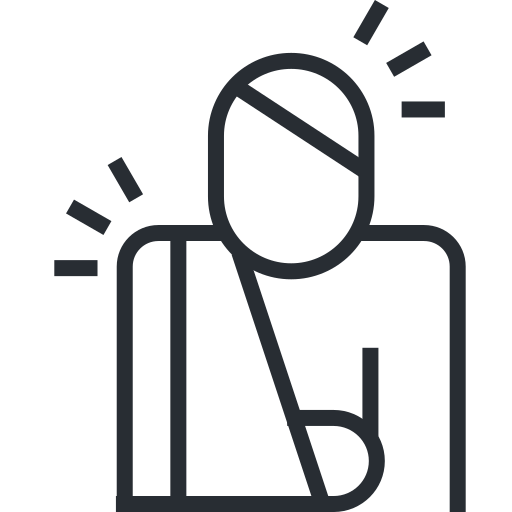If you’ve suffered an injury due to someone else’s careless or reckless actions in Houston, you may be overwhelmed and uncertain about your legal options. A personal injury lawsuit can be a path to obtaining compensation for your losses, but it’s a complex process. This article will break down the steps involved and provide insights specific to Texas law so that you can make informed decisions about pursuing your claim.
Step 1: Seek Medical Attention & Document Everything
our health and well-being should always be your top priority after an accident. Seek medical attention immediately, even for seemingly minor injuries. Keep thorough records of everything related to your injury:
- Medical reports, treatment plans, and bills
- Photos of the accident scene and your injuries
- Documentation of lost wages or missed work
- A journal detailing your pain, limitations, and how the injury impacts your daily life
Step 2: Consult with a Houston Personal Injury Lawyer
An experienced personal injury lawyer is your best ally. They can evaluate your case, explain your rights, and handle all the legal complexities on your behalf. Look for a Houston-based firm with a proven track record of success in cases similar to yours. During your free consultation, be prepared to discuss the details of your accident and any prior injuries.
Step 3: Investigating and Building Your Case
Your lawyer will conduct a thorough investigation, which may include:
- Gathering police reports, witness statements, and expert analysis
- Reviewing medical records and assessing the extent of your injuries
- Calculating the full scope of your damages, including future medical expenses or lost earning potential
- Identifying all potentially liable parties
Step 4: Negotiating with the Insurance Company
In most cases, the at-fault party will have insurance coverage. Your lawyer will handle negotiations with the insurers, aiming for a fair settlement that reflects the true impact of your injuries. This process can be lengthy and complex, as insurance companies often try to minimize payouts.
Step 5: Filing a Lawsuit (If Necessary)
If a settlement cannot be reached, your attorney will file a lawsuit to bring your case before a judge. It’s critical to note that Texas has a statute of limitations on personal injury claims, generally two years from the date of injury. Failing to file suit within this timeframe can jeopardize your right to seek compensation.
Step 6: The Discovery Phase
Once a lawsuit is filed, both sides participate in ‘discovery,’ where they exchange information and evidence. This can involve:
- Depositions: Sworn testimony from witnesses and involved parties
- Interrogatories: Written questions that must be answered under oath
- Requests for documents: Obtaining relevant records and evidence
Step 7: Pre-trial Motions and Mediation
Throughout the lawsuit, there may be motions filed on various legal arguments. Your attorney will handle these on your behalf. Often, there will be an attempt at mediation, a facilitated negotiation process aimed at reaching a settlement before trial.
Step 8: Going to Trial
If a settlement is still not reached, your case will go to trial. Here’s how a typical Texas personal injury trial proceeds:
- Jury Selection: If you choose a jury trial, both sides participate in the selection process.
- Opening Statements: Lawyers present their versions of events.
- Witness Testimony and Evidence: Evidence is introduced, witnesses are questioned, and may be cross-examined by the opposing side.
- Closing Arguments: Attorneys summarize the case and argue for their client.
- Jury Deliberation & Verdict: The jury decides who is liable and the amount of compensation to be awarded.
Step 9: Post-Trial
Even after a verdict, there can be:
- Appeals: The losing side may appeal the decision to a higher court.
- Settlement Negotiation: Even at this stage, settlement discussions may occur.
- Collection of Judgment: If you win, your lawyer may assist in collecting compensation awarded.
Additional Texas-Specific Considerations
- Contributory Negligence: Texas follows a “modified comparative fault” rule, meaning your compensation can be reduced if you’re deemed partially at fault for the accident.
- Damage Caps: In some cases, Texas law places limits (caps) on certain types of damages you may recover.
- Attorney Javier Marcos will address any of these issues.



























